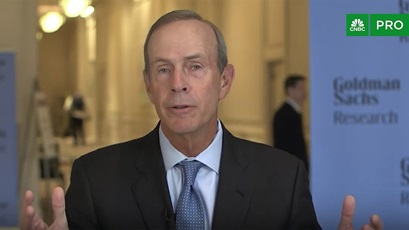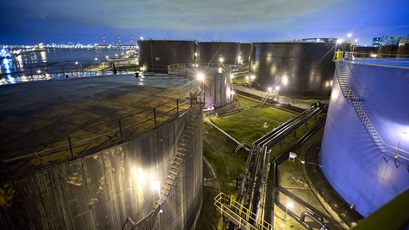alternative fuels
energy everywhere: renewable diesel
2 min read | june 20, 2023
Meir Hasbani, Chevron biofuels program manager.
Energy can be found almost everywhere, including in soybeans and used cooking oil.
We’re working to scale our biofeedstocks business to produce biofuels like renewable diesel, which can help lower the carbon intensity of the transportation industry.
“I’m working here at Chevron to turn vegetable oil, like soy, into renewable diesel fuel that can be used to power cars and trucks,” said Meir Hasbani, avid surfer and skier, and Chevron’s biofuels program manager.
why it matters
Transportation is the largest single source of greenhouse gas emissions in the United States.
Renewable fuels have the potential to help reduce these emissions at scale and are just one of the multiple solutions we’re working on that will help meet the goals of The Paris Agreement.
Diesel is vital to commercial transportation—from farming and construction equipment that cultivate crops to the diesel-powered trucks and trains that deliver finished products.
With a 50% reduction on average in lifecycle greenhouse gas emissions relative to petroleum diesel, renewable diesel can help lower the carbon intensity of the medium- and heavy-duty transportation industries.
meir hasbani
biofuels program manager

Hasbani (left) walking with Ray Obico near the vegetable oil tank at El Segundo Refinery in California.
a lower carbon future today
Renewable diesel is sourced from multiple renewable feedstocks—including soybean oil, canola oil, used cooking oils and animal fats. It works just like petroleum diesel, making it a drop-in fuel compatible with vehicles on the road today. No new engines or infrastructure are needed.
It can be seamlessly blended, transported and co-processed with petroleum diesel for use in heavy-duty equipment like garbage trucks, long-haul semi-trucks and trains, and transported using existing infrastructure like pipelines, terminals and fueling stations.
“Renewable diesel is a way for us to make an impact right away,” Hasbani said.
part of the solution
In 2021, Chevron announced our intention to grow our renewable fuels production capacity to 100,000 barrels per day by 2030.
With our projects at El Segundo Refinery and our acquisition of Renewable Energy Group (REG) in 2022, we are approximately halfway to that goal.
“I’d like to see a day when the vast majority of the fuels we’re producing are lower carbon and renewable,” said Hasbani.
In the Energy Everywhere series, we will highlight how Chevron is helping power everyday life through different forms of energy.
Innovation enables human progress, and this series will demonstrate how we are working to provide affordable, reliable, ever-cleaner energy to meet the world’s growing needs.
topics covered
related content
-

 chevron CEO discusses the future of energy
chevron CEO discusses the future of energyemissions solutionsjanuary 20, 2025
-

 novel ideas, established companies key to advancing lower carbon tech
novel ideas, established companies key to advancing lower carbon techemissions solutionsjanuary 14, 2025
-

 chevron CEO talks growing production, efficient spending
chevron CEO talks growing production, efficient spendingemissions solutionsdecember 18, 2024
-

 biofuels can help maritime industry lower carbon intensity
biofuels can help maritime industry lower carbon intensityalternative fuelsnovember 08, 2024
chevron email updates
Subscribe to our newsletter to receive news and updates.



